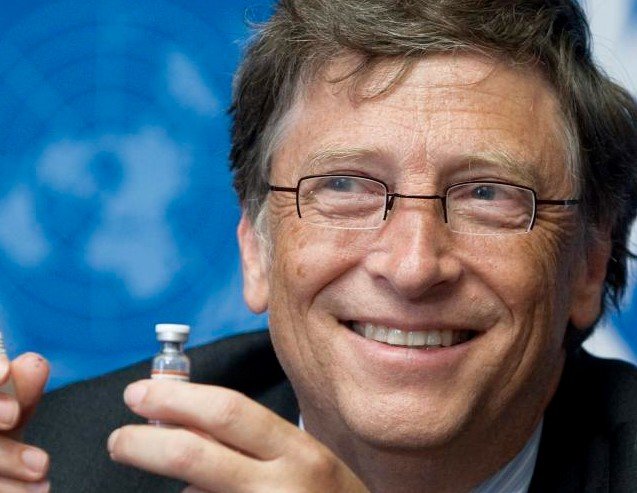For decades, they were digital archrivals — titans of opposing tech ideologies who shaped the fabric of computing. But now, after years of indirect jabs, fiery quotes, and clashing software empires, Bill Gates and Linus Torvalds have finally shared a dinner table.
Hosted quietly by Microsoft Azure’s CTO Mark Russinovich, the June 2025 meetup brought together three computing legends: Gates, Torvalds, and veteran Windows architect David Cutler. “No major kernel decisions were made,” Russinovich joked in his post, “but maybe next dinner ;)”
A Quiet Dinner With Loud Implications
Nobody expected fireworks from the evening. There were no press conferences, no grand declarations. Just a low-lit dinner and a simple post on LinkedIn. Still, the tech world took notice.
Gates, the architect of the Windows empire, once led one of the fiercest battles against open-source software. Torvalds, on the other hand, became a global symbol of digital freedom. Their coexistence in a single room, let alone a shared meal, speaks volumes about how much the landscape has changed.
It wasn’t just a handshake — it was a moment of cultural thaw. You could practically hear the servers groaning from Reddit to Hacker News.

From “Cancer” to Collaboration
To understand why this meeting hit such a nerve, rewind to 2001. Steve Ballmer, then Microsoft CEO, made headlines with a scathing attack: “Linux is a cancer that attaches itself in an intellectual property sense to everything it touches.” That one sentence marked the deep chill between Microsoft and open-source advocates for years.
The rhetoric softened, eventually. By 2016, Ballmer recanted, admitting that open source wasn’t the existential threat it once appeared to be.
Fast forward to now, and Microsoft is one of the largest corporate contributors to the Linux kernel. Its Azure cloud services even rely on Linux under the hood. That shift didn’t happen overnight.
One sentence:
Still, seeing Gates — the man who popularized commercial software licenses — sitting down with the founder of a movement based on giving software away for free? That’s wild.
The Shift in Microsoft’s Open-Source Dance
Microsoft’s evolution didn’t just stop at using Linux. Under CEO Satya Nadella, the company embraced open-source principles in ways once unthinkable to older Microsoft execs.
Let’s just look at some key moments:
-
Acquired GitHub in 2018, home to millions of open-source projects
-
Released Visual Studio Code as open-source
-
Launched WSL (Windows Subsystem for Linux)
-
Pushed Linux-based tools into Azure at full throttle
It wasn’t all love and roses — skepticism lingered. But you can’t ignore the sheer scale of change. Microsoft went from a walled garden to a surprisingly open one, and Linus Torvalds became less of a competitor and more of a collaborator by proxy.
And yet… they never met. Not until now.
A Table for Three, With Decades of History
Mark Russinovich might’ve intended it as a casual get-together. But for everyone else, it was a table laden with decades of digital drama. David Cutler, who built the NT kernel, sat between the creator of Linux and the man who bankrolled Windows.
That’s like Spielberg, Scorsese, and Tarantino grabbing lunch and not talking about film.
One thing is certain — nobody at that table forgot history.
Torvalds, famously unfiltered, hasn’t changed his tone over the years. He still pokes fun at what he calls “bad software” and has long criticized bloated tech and what he sees as industry nonsense. Gates, meanwhile, has shifted focus from software to global health and now AI — where their views still clash.
In fact, on AI, the two couldn’t be further apart.
Differing Visions on AI and the Future of Work
Bill Gates is bullish. In interviews this year, he suggested AI might soon make humans “unnecessary for most jobs.” He’s fascinated by the potential — and also alarmed. Yet his outlook is generally optimistic. He sees transformation, not just disruption.
Torvalds? Not so fast. He’s voiced concern about the AI hype. Back in 2024, he said most AI products he sees are “fancy regressions on expensive GPUs.” He’s not a doomsayer, but he’s skeptical of inflated promises and the ethics of surveillance-tech baked into AI tools.
They may have met, but their perspectives remain miles apart.
Tech’s Unlikely Photo Op Sparks Meme Frenzy
Online, the response to their meetup was somewhere between comedy and awe. Memes flooded Reddit. One user called it “the tech version of Batman meeting Joker — if Joker were Finnish and Batman wore a sweater vest.”
Another joked: “Next up: RMS [Richard Stallman] joins Google!”
The internet’s sense of humor aside, the sheer symbolism of the moment hit hard. Gates represented the dominance of closed-source, profit-driven software. Torvalds, the open-source upstart, became a messiah to coders everywhere who wanted freedom and transparency.
They didn’t shake hands in front of a camera. They just shared dinner.
That, ironically, made it more real.
Has the War Ended, or Just Changed?
Sure, Microsoft doesn’t see Linux as a threat anymore. But new tensions are rising in different corners — from data ownership to AI to digital sovereignty.
Europe, for instance, still worries about cloud dependence on American tech giants. In fact, some policymakers warn that companies like Microsoft could act as geopolitical levers in future conflicts.
But as for the Gates-Torvalds dynamic? Maybe it’s evolved into something closer to respect.
Or, at the very least, polite disagreement over steak.








